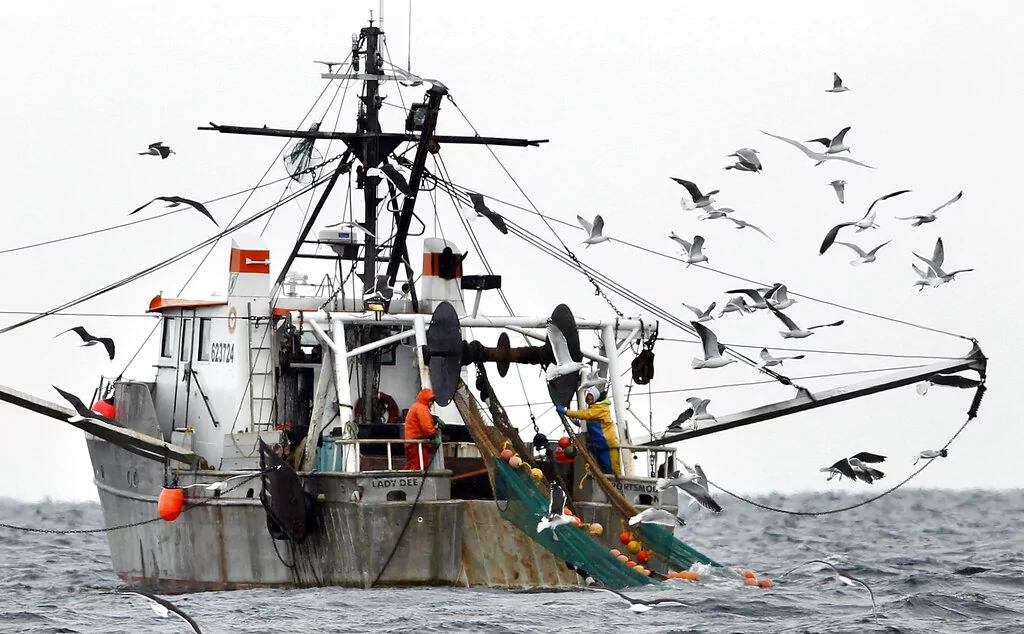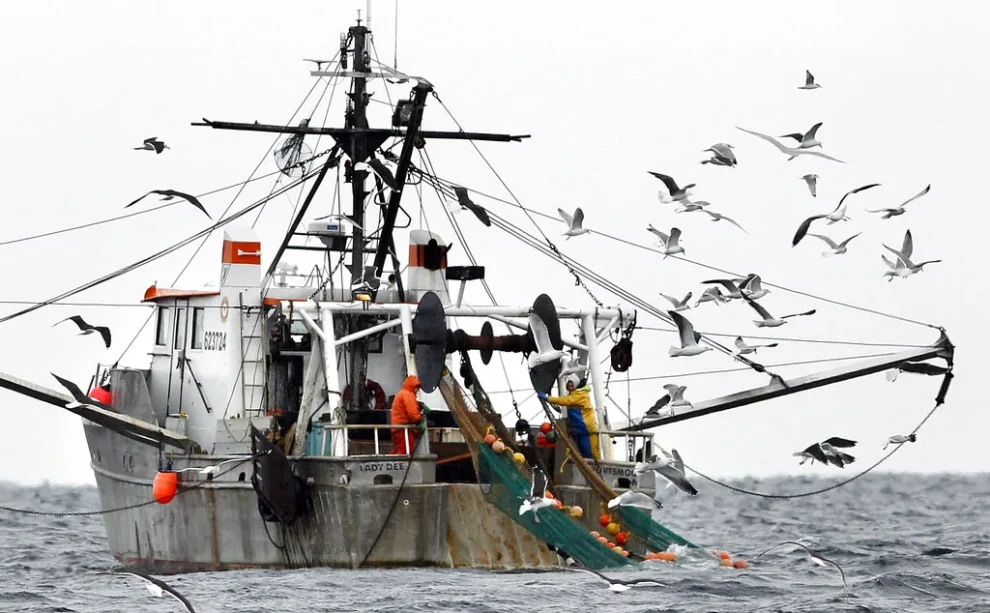President Donald Trump‘s sweeping tariffs, announced Wednesday, have received strong support from the U.S. shrimp industry, which sees them as an opportunity for survival.
After peaking in the 1990s, the U.S. shrimp industry has faced a precipitous decline over the past 15 years. Cheaper imports of farmed shrimp, facing no import duties, have undercut U.S. wild-caught shrimp. The U.S. shrimping industry has lost half of its market value since 2021, according to the Southern Shrimp Alliance, ending the businesses of many.
Shrimpers now see Trump’s “Liberation Day” tariffs as a lifeline.

“We’ve watched as multigenerational family businesses tie up their boats, unable to compete with foreign producers who play by a completely different set of rules,” John Williams, executive director of the Southern Shrimp Alliance, said in a statement. “We are grateful for the Trump administration’s actions today, which will preserve American jobs, food security, and our commitment to ethical production.“
The U.S. imports 94% of its shrimp, with six suppliers accounting for 96% of those imports. In comparison, only 15% of the overall U.S. food supply is imported. The biggest shrimp suppliers are India, 42.3%; Ecuador, 26.9%; Indonesia, 15.4%; Vietnam, 7.2%; Thailand, 2.4%; and Argentina, 2.1%. These countries face tariffs ranging from 10% to 46%, with India, the largest producer, subject to a 26% tariff.
The Southern Shrimp Alliance said its decline isn’t due to fair competition but unfair trade practices. This includes U.S. investment in foreign aquaculture, forced labor, the use of illegal antibiotics, and environmental destruction.
“Our government has been outsourcing our food supply to companies engaged in practices we would never accept on American soil,” Williams said. “Without quickly addressing unfair trade, we are choosing a food supply chain that is fully outsourced to industries that engage in horrible practices. If we wait for systemic reforms, we will lose our domestic shrimp industry.”
The organization said international financial institutions, backed by the U.S. government, have invested billions of dollars in developing its abusive competitors. Ecuador, the U.S.’s second-largest supplier, has received over $550 million in development funding for shrimp farming since 2000, with $195 million going directly to private companies competing with U.S. shrimpers. India, Indonesia, and Vietnam have also been inundated with funds.
Congress has tried to stop this practice. Reps. Clay Higgins (R-LA) and Troy Nehls (R-TX) reintroduced the Save Our Shrimpers Act in March, which aims to prohibit federal funds from financing foreign shrimp farming and processing.
“Today’s demand for shrimp is met at a massive human, environmental, and public health cost,” Williams said. “When we outsource our seafood production to industries that use forced labor and environmental shortcuts, we’re making a choice about the kind of world we want to support.”
Vietnam and India are two of the biggest users of antibiotics in shrimping, according to data from the European Union, Japan, and the United States. This practice is harshly criticized by governments and activists due to the risk of creating antibiotic-resistant pathogens, which can harm animals and humans.
Slave labor and environmental destruction are common practices in major shrimp-exporting countries that are banned by U.S. regulations. The National Oceanic and Atmospheric Administration said the U.S. shrimp industry is fully sustainable — one of the most sustainable in the world. The agency closely monitors shrimp stocks to prevent overfishing.
The U.S. shrimp industry saw its biggest blow from 2022 to 2023. Wild-caught shrimp saw a 38% drop in revenue from $329 million to $202 million, despite landings only dropping 4% from 111 million pounds to 107 million pounds, according to the NOAA.
THESE ITEMS IN THE US WILL SEE HIGHER PRICES DUE TO TRUMP’S ‘LIBERATION DAY’ TARIFFS
Following the Trump tariff announcement, the shrimp industry expressed optimism for the first time in years.
“We’ve been dying for the last 20 years, and the last four years have really been tough,” Acy Cooper, the president of the Louisiana Shrimp Association, told Nola. “Then Trump comes in — that’s why we voted for him. We want change. We can’t live like this anymore.”
























